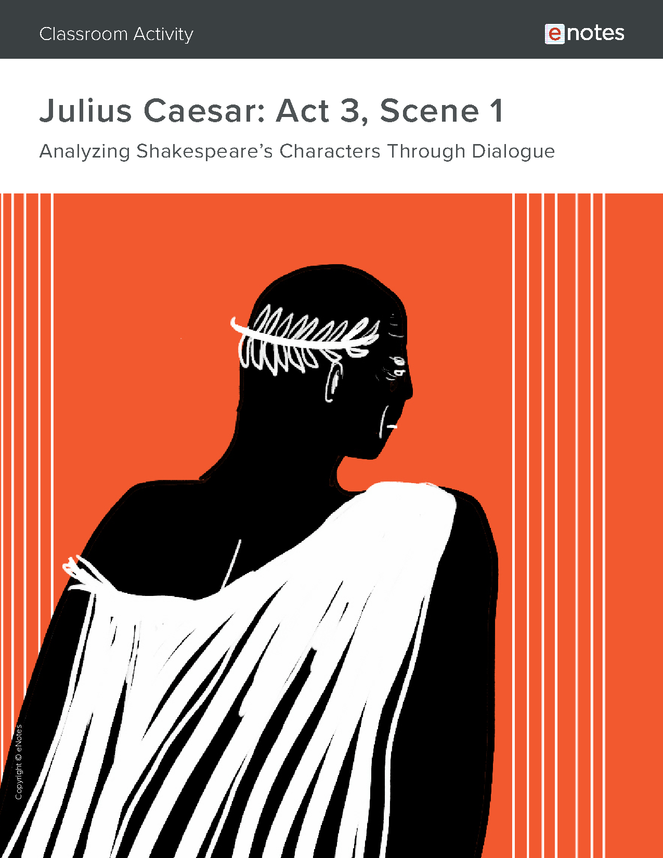The assassination of Julius Caesar in Shakespeare’s “Julius Caesar” is a pivotal event, and Act 3 Scene 2 unfolds the immediate aftermath of this shocking act. The scene is charged with tension, as the conspirators grapple with the consequences of their actions, the citizens of Rome react with fear and anger, and the seeds of revenge are sown. Analyzing this dramatic scene reveals a complex interplay of emotions, motivations, and consequences, offering profound insights into the human condition.

Image: www.annetterubery.co.uk
Understanding the significance of Act 3 Scene 2 requires a basic comprehension of the play’s context. Julius Caesar, a Roman general and statesman, had risen to immense power, sparking fears of tyranny among certain senators like Brutus and Cassius. They believed that Caesar’s ambition posed a threat to the Roman Republic, leading them to orchestrate his assassination. Scene 2 takes place immediately after the deed, showcasing the immediate fallout of the conspirators’ decision.
A Chorus of Reactions
The Conspirators: A Fleeting Sense of Victory
The scene opens with the conspirators, drenched in the blood of their victim, standing triumphant over Caesar’s lifeless body. Their initial sense of victory is palpable, marked by Brutus’s claim that “Liberty! Freedom! Tyranny is dead!” However, this triumph is short-lived. The conspirators’ victory is stained with the chilling reality of what they have done. Their initial exuberance quickly gives way to uncertainty and fear.
Brutus, the soul of the conspiracy, attempts to rationalize their actions, justifying Caesar’s death as a necessary sacrifice for the sake of Roman liberty. He attempts to rally the citizens by proclaiming, “Romans, countrymen, and lovers! Hear me for my cause.” His words hold the promise of a glorious new era, but they are met with a palpable sense of unease.
The Citizens: Bewildered and Angered
The citizens of Rome, initially confused and shocked by the assassination, are easily swayed by the fiery rhetoric of Mark Antony, Caesar’s loyal friend and a gifted orator. He delivers a masterful speech, skillfully exploiting the public’s grief and anger over Caesar’s death. Antony deftly manipulates the crowd by employing emotional appeals, vivid imagery, and a skillful use of silence.
By strategically highlighting Caesar’s noble virtues and emphasizing the brutality of the assassination, Antony effectively turns the tide of public opinion. Antony unveils the conspirators’ motives, exposing their hypocrisy and accusing them of treachery. The crowd, once sympathetic to Brutus, is now driven by rage and a thirst for vengeance.

Image: www.enotes.com
The Seeds of Revenge are Sown
Antonius’s masterful speech is a turning point, transforming the conspirators’ fleeting victory into a burgeoning rebellion. His eloquent words, fuelled by genuine sorrow and strategic manipulation, ignite the fury of the Roman populace. The scene ends with the crowd, driven by passion and a sense of injustice, vowing to avenge Caesar’s death. Antony’s speech has not only achieved his immediate goal of rallying the public; it has also set in motion a chain of events leading to a bloody civil war.
The Significance of Act 3 Scene 2
Act 3 Scene 2 is central to “Julius Caesar” because it marks a dramatic shift in the play’s trajectory. The scene showcases the power of rhetoric and the fragility of political alliances. It highlights the fickle nature of public opinion and reveals the consequences of unchecked ambition. This scene, through a masterful display of Shakespearean drama, reveals the intricate tapestry of human emotions—love, grief, anger, and fear—and the devastating impact they can have on the course of history.
Julius Caesar Act 3 Scene 2 Questions And Answers
Exploring Further
Understanding the intricacies of Act 3 Scene 2 illuminates the complexities of “Julius Caesar” as a whole. Consider the following questions as you engage with this pivotal scene:
- How does Shakespeare use language to reveal the emotions and motivations of the various characters?
- What symbolic elements are deployed in this scene, and how do they contribute to the play’s themes?
- What are the key themes of Act 3 Scene 2, and how do they resonate with contemporary audiences?
Engaging with these questions and analyzing the scene further can deepen your appreciation of the play’s power and its enduring relevance. The events of Act 3 Scene 2 serve as a reminder of the fragility of peace, the destructive nature of ambition, and the enduring power of human emotions.






